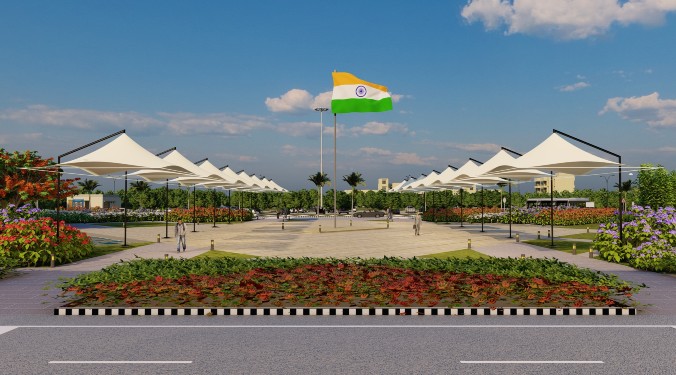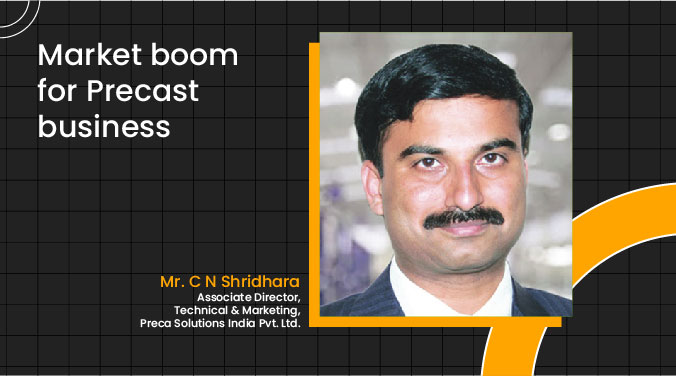Need For Speed
“There is a need to speed up ongoing efforts to simplify approval and pre-tendering processes and regulatory transformation to achieve the infrastructure goals,” says Divakar Marri, Head – Corporate Planning & Program Management, Ramky Infrastructure
Now, roads ministry can clear EPC projects worth ` 500 crore. How do you see this opportunity for EPC business?It is really pinning hopes for award of road projects on EPC mode to pick up momentum. This move would be instrumental in attracting builders who are at present showing no interest in highway project for want of funds.
The Indian Government had planned to construct 20 km of highway a day; do you think it is feasible? The target seems ambitious but I think government of India is going overboard on taking up the construction of 20 km of highway per day as builders are not coming forward due to fund crunch in the present economic scenario and also owing to various reasons such as delay in getting environment clearance, land acquisition, regulatory approvals, etc.
Highways construction manages to hit 15 km a day in FY-13 which represents a sharp increase of more than 4 km a day over prior year. How did it happen?Construction and expansion of national highways has touched 15 km a day during 2012-13, registering an increase of over 4 km per day. Though this is much less than the government’s commitment to construct 20 km per day, it is a relief to the highways ministry and National Highways Authority of India (NHAI) in light of very few projects on public-private-partnership (PPP) being bagged by highway developers.
NHAI and agencies undertaking projects under the ministry have improved their performance. While last year the highways authority had constructed only 2,248 km, this year it is close to 2,800 km. Since there was huge slowdown on the bidding of projects, contractors and NHAI has focused on construction and there was strict monitoring of progress, which has made it to happen.
How we can achieve the target of building 20 km a day?To achieve this, NHAI will not only have to award higher number of highway projects but will also have to build 7,000 km stretch every year. Projects should be dealt in a way the private equity gets interested. Equity is a major concern for awarding road projects of 10,000 km a year, including 7,000 km of national highways. It requires `?90,000 crore investment, of which one-third (`?30,000 crore) should be private equity. As I said earlier, there is a need to speed up ongoing efforts to simplify approval and pre-tendering processes and regulatory transformation to achieve the infrastructure goals.
How is the industry coping up to the challenges like delay in getting environment clearance and land acquisition?Land acquisition, getting environmental clearances and there are still multiple roadblocks that adversely affect infrastructure development. The process of land acquisition needs to be streamlined, the key policies and regulation reforms should be fast-tracked for enhanced implementation, a robust dispute resolution framework must be in place, enhanced monitoring of projects implemented and funding is to be facilitated. These are some of the major action points the Government needs to take up on a priority basis so that the industry can cope up.
What steps should be taken to improve the quality of roads? “Well-planned, properly maintained and safe roads are critical for economic growth and overcoming poverty,” according to a report released by the World Bank on 1 June 2011.
The technical capabilities of consultants should be evaluated during the selection process to improve the quality of project planning and bidding.
Selecting contractors and consultants, based on the cost criteria alone can affect the quality and delivery of projects; instead, they should be selected for their experience and proven skills. A robust process for selecting them directly will improve the final project outcome and minimise cost and time over-runs. Therefore, they should be selected by the “quality-cum-cost basis selection” method instead of on basis of the lowest bid.
Cookie Consent
We use cookies to personalize your experience. By continuing to visit this website you agree to our Terms & Conditions, Privacy Policy and Cookie Policy.









